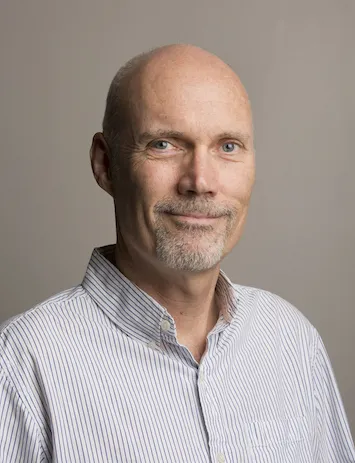Historian Bruce Dorsey Receives LGBT Religious History Award

Dorsey is the ninth scholar to receive the LGBT Religious History Award, the only such honor in the field.
Professor of History Bruce Dorsey is the recipient of the 2015-2016 LGBT Religious History Award for his recent essay on male same-sex intimacy and evangelical religion.
The only such honor for scholarship in this field, the award recognizes Dorsey’s “Making Men What They Should Be: Male Same-Sex Intimacy and Evangelical Religion in Early Nineteenth-Century New England,” from the September edition of The Journal of History and Sexuality.
“I’m delighted that my essay was recognized with the LGBT Religious History Award,” says Dorsey, who teaches courses on early American history, cultural history, and the history of gender and sexuality at Swarthmore.
“The article subverts assumptions that these two aspects of human experience — religion and sex — are often in conflict,” he adds. “By doing so, it shows that historical research can help rethink assumptions that evangelical Christians were always hostile to same-sex intimacy and sexuality.”
The essay explores an 1830s New England sex scandal involving a revivalist preacher from a small denomination called the Christian Connection. It’s the only known instance of a clergyman accused and tried (in a religious tribunal) during the early 19th century for same-sex sexual advances.
“Choosing not to dismiss Sherman as another in a long line of predatory clergymen,” the LGBT Religious Archives Network (LGBT-RAN) says, “Dorsey explores the ways in which early evangelical piety embodied desire and eroticism, and the ways in which the scandalous can reveal quotidian expressions of love, intimacy, and desire.”
Dorsey's analysis of Sherman’s story unfolds on three levels: the contested meanings of masculinity and gender transgression at a time when evangelicals were confronting the emergence of women and lay preachers; the significance of intimacy and homoerotic desire within evangelical religious communities; and how the preacher’s story reveals a transformative moment in antebellum America.
“The scandal surrounding an evangelical preacher’s same-sex desires, actions, and writings during the 1830s suggests the possibilities for intimacy and sexual expression within these religious communities in the past,” says Dorsey.
The LGBT-RAN jury members laud Dorsey’s work as “an excellent use of sources that is well-situated in the historical period and in contemporary scholarly discussions about male-male sexual behavior in early 19th-century New England.”
“Dorsey goes beyond existing studies to suggest that this particular trial points to broader shifts in print culture, moral reform, and evangelical piety,” the jury adds, “away from an older intermeshed sexual-religious culture that fostered male-male intimacy and toward a newer trend toward moral reform, public sexual broadsides, and compulsory heterosexuality.”



